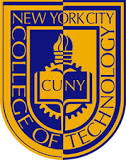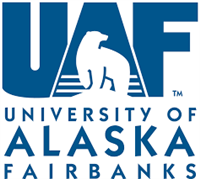What do they do?
Compile and record employee time and payroll data. May compute employees' time worked, production, and commission. May compute and post wages and deductions, or prepare paychecks.
Also known as:
Accounting Assistant, Finance Specialist, Human Resources Assistant (HR Assistant), Payroll and Benefits Specialist, Payroll Assistant, Payroll Clerk, Payroll Coordinator, Payroll Officer, Payroll Representative, Payroll Secretary, Payroll Specialist, Payroll Technician, Personnel Assistant, Personnel Clerk, Personnel Technician, Time and Attendance Clerk, Timekeeper
-
-15%
Change
Ranks #61 in job growth rate370Job Openings
Ranks #12 in net job growth
-
Rowan University
Glassboro, NJ
-
Broward College
Fort Lauderdale, FL
-
Delgado Community College
New Orleans, LA
-
Irvine Valley College
Irvine, CA
-
Moraine Park Technical College
Fond du Lac, WI
Looking for colleges that offer a specific major? Use the College Match Tool to find your best-matched schools and discover your estimated Net Price!
- Doctorate or Professional Degree (1%)
- Master's degree (4%)
- Bachelor's degree (22%)
- Associate's degree (17%)
- Some college, no degree (31%)
- High school diploma equivalent (23%)
- Less than high school diploma (3%)
People in this career often have these skills:
- Reading Comprehension - Understanding written sentences and paragraphs in work-related documents.
- Active Listening - Giving full attention to what other people are saying, taking time to understand the points being made, asking questions as appropriate, and not interrupting at inappropriate times.
People in this career often know a lot about:
- Administrative - Knowledge of administrative and office procedures and systems such as word processing, managing files and records, stenography and transcription, designing forms, and workplace terminology.
- Mathematics - Knowledge of arithmetic, algebra, geometry, calculus, statistics, and their applications.
- English Language - Knowledge of the structure and content of the English language including the meaning and spelling of words, rules of composition, and grammar.
- Economics and Accounting - Knowledge of economic and accounting principles and practices, the financial markets, banking, and the analysis and reporting of financial data.
- Personnel and Human Resources - Knowledge of principles and procedures for personnel recruitment, selection, training, compensation and benefits, labor relations and negotiation, and personnel information systems.
- Administration and Management - Knowledge of business and management principles involved in strategic planning, resource allocation, human resources modeling, leadership technique, production methods, and coordination of people and resources.
People in this career often have talent in:
- Oral Comprehension - The ability to listen to and understand information and ideas presented through spoken words and sentences.
- Written Comprehension - The ability to read and understand information and ideas presented in writing.
- Written Expression - The ability to communicate information and ideas in writing so others will understand.
- Near Vision - The ability to see details at close range (within a few feet of the observer).
- Oral Expression - The ability to communicate information and ideas in speaking so others will understand.
- Mathematical Reasoning - The ability to choose the right mathematical methods or formulas to solve a problem.
- Information Ordering - The ability to arrange things or actions in a certain order or pattern according to a specific rule or set of rules (e.g., patterns of numbers, letters, words, pictures, mathematical operations).
- Number Facility - The ability to add, subtract, multiply, or divide quickly and correctly.
People in this career often do these activities:
- Verify employee information.
- Execute sales or other financial transactions.
- Calculate financial data.
- Enter information into databases or software programs.
- Prepare financial documents.
- File documents or records.
- Record personnel information.
- Reconcile records of sales or other financial transactions.
- Prepare research or technical reports.
- Distribute materials to employees or customers.
- Compile data or documentation.
- Maintain current knowledge related to work activities.
- Check data for recording errors.
- Prepare documentation for contracts, transactions, or regulatory compliance.
- Provide information to coworkers.
- Train others in operational procedures.
- Coordinate operational activities.
This page includes data from:

 Occupation statistics: USDOL U.S. Bureau of Labor Statistics Occupational Employment Statistics
Occupation statistics: USDOL U.S. Bureau of Labor Statistics Occupational Employment Statistics
 Videos: CareerOneStop, USDOL/ETA and the Minnesota Department of Employment & Economic Development
Videos: CareerOneStop, USDOL/ETA and the Minnesota Department of Employment & Economic Development









